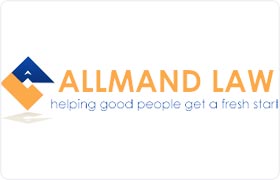Sunnyvale Bankruptcy & Debt Lawyer, Texas
Sponsored Law Firm
-
 x
x

Click For More Info:
-
Allmand Law Firm
4849 Greenville Ave Ste 230 Dallas, TX 75206» view mapBankruptcy Helping Good People Get a Fresh Start
At Allmand Law Firm, PLLC, our goal is to help each of our clients pursue a fresh start and the second chance they need to start again.
800-828-7421
Arthur Stephen Linn
Wills, Family Law, Consumer Bankruptcy, Bankruptcy
Status: Deceased Licensed: 26 Years
Clifton M. Freeman
Litigation, Business & Trade, Consumer Bankruptcy, Personal Injury, Accident & Injury
Status: In Good Standing Licensed: 42 Years
Daniel R. Strann
Farms, Child Support, Criminal, Bankruptcy
Status: In Good Standing Licensed: 40 Years
Daniel James Artz
Commercial Real Estate, Litigation, Credit & Debt, Bankruptcy
Status: In Good Standing Licensed: 42 Years
David Irwin Goodhart
Estate Planning, International Tax, Bankruptcy, Criminal, Commercial Real Estate
Status: In Good Standing Licensed: 29 Years
Edward Keith Riddle
Elder Law, Family Law, Consumer Bankruptcy, Wills
Status: In Good Standing Licensed: 33 Years
Gregg Oberg
Motor Vehicle, Litigation, Consumer Bankruptcy, Personal Injury, Accident & Injury
Status: In Good Standing
Jonathan A. Gruver
Lawsuit & Dispute, Litigation, Commercial Bankruptcy
Status: In Good Standing Licensed: 36 Years
Jordan Montgomery Lewis
Traffic, Patent, Employment, Bankruptcy
Status: In Good Standing Licensed: 10 Years
 Weldon Allman Dallas, TX
Weldon Allman Dallas, TX AboutAllmand Law Firm
AboutAllmand Law Firm Practice AreasExpertise
Practice AreasExpertise
